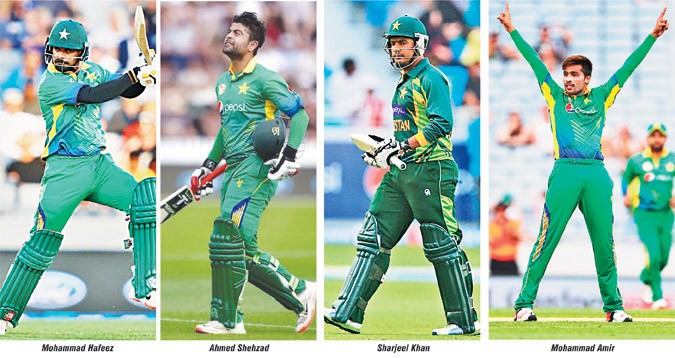
Can Pakistan’s misfiring players stand up and deliver at the World Twenty20 in India?

Pakistan have landed in Kolkata putting an end to the several days of uncertainty surrounding their participation in the ICC World Twenty20 championship. They have missed the first of their two warm-up games and now play Sri Lanka on Monday (tomorrow) in what will be their first and last chance to get ready to launch their World Twenty20 campaign.
Pakistan’s pre-tournament preps should have been better but there is no use crying over spilt milk.
Pakistan’s target now is to, somehow, repeat the sort of show that made them the World T20 champions back in 2009 in England. Captained by Younis Khan, Pakistan produced a series of stellar performances to win the crown.
However, such has been Pakistan’s showing in recent times that even the most ardent of their fans are skeptical of the national team’s chances of winning the tournament in India. Under the seasoned Shahid Afridi, Pakistan have been below-par for quite some time. Going into the World Twenty20, they fell to India and Bangladesh to crash out of the Asia Cup in Bangladesh. They have tried out several players without much success and were forced to recall past failures like Ahmed Shehzad. All of that doesn’t augur well for the Pakistanis who face an uphill task in their quest for a place in the semi-finals. They have three of the in-form teams - India, Australia and New Zealand - in their group.
But more often than not, Pakistan have exhibited the tendency of bouncing back when the chips are down. Waqar Younis, Pakistan’s head coach, spoke about it before leaving for India and more or less said that his team has nowhere else to go but up. The under-fire Afridi, too, exuded confidence soon after it was announced on Friday that the government has allowed the team to travel to India.
Most of Pakistan’s optimism springs from the belief that their players have the potential to do better than what they’ve done in recent times.
Stats, however, tell a different story.
Former Australia captain Ian Chappell recently came out with a recipe for Twenty20 success. The key ingredients in his winning mix include "a top three, all capable of quick-fire but substantial scores, a new-ball bowler who takes wickets at both ends of an innings, a spinner who buys wickets in the middle overs, finishing specialists with both bat and ball, and fielders who excel in catching, saving runs and hitting the stumps.
"They generally perform the starring roles and then you have the support players: the middle-order hitters who can deliver an over or two and field like demons, tidy bowlers who specialise in economy, and, last but by no means least, a competent keeper who can bat," Chappell wrote in a column.
It is hardly surprising that Chappell doesn’t count Pakistan among his list of favourites for a spot in the semi-finals of the ICC World Twenty20 championship in India.
Apart from having a new-ball bowler capable of taking wicket and a competent stumper who is good with the bat, Pakistan don’t seem to have the sort of ingredients that can help a team go all the way in a major event like the World Twenty20.
Let’s start with the top-order batters. Ahmed Shehzad almost didn’t make the cut for World Twenty and was a last-minute inclusion in the 15-man squad mainly because Khurram Manzoor flopped miserably in the Asia Cup. Mohammad Hafeez has not been in his element for quite some time when Sharjeel Khan has so far been unable to translate his PSL heroics into success at the international level.
Big-hitting batters especially at the top of the batting order are the engines of any team in the Twenty20 format and the bigger hitter they are, the better.
The trio of Ahmed, Hafeez and Sharjeel will have to fire if Pakistan are to qualify for the semis. On flatter Indian wickets they might have a chance unlike in Bangladesh where they failed on challenging tracks. All three of them have the ability to clear the boundaries and will need to exhibit their six-hitting prowess especially in the crunch games of the tournament.
There is also a lot of responsibility on Afridi. The all-rounder, many argue, doesn’t deserve to be in the squad because of his indifferent form. He will have to silence his critics because Afridi’s form will be key to Pakistan’s chances.
The likes of Umar Akmal and Shoaib Malik should also raise the standard of their game to bolster Pakistan’s fragile batting.
The silver lining for Pakistan is Mohammad Amir’s successful comeback and Sarfraz Ahmed’s never-say die attitude. But both of them need their team-mates to stand up and deliver. If they don’t then in less than a week’s time, Pakistan’s race for a place in World Twenty20 semi-finals could be all but over.